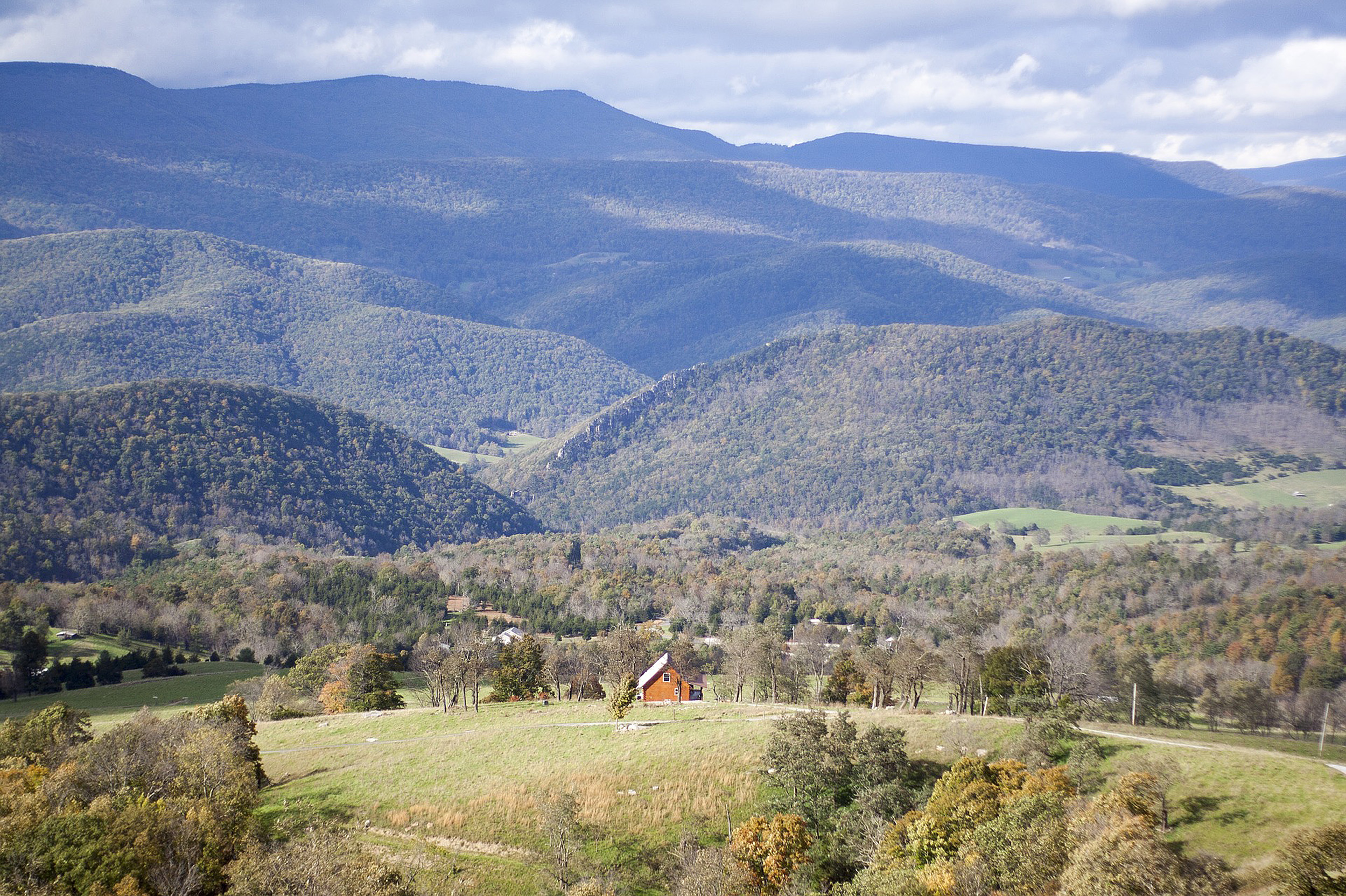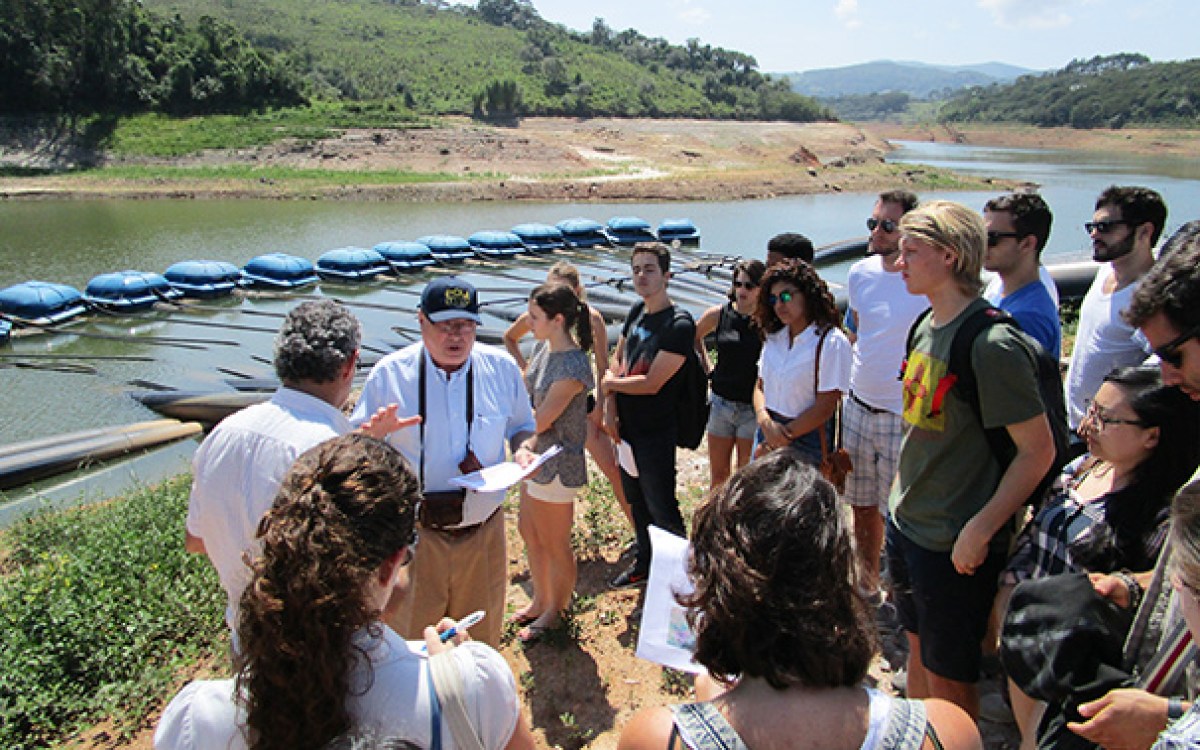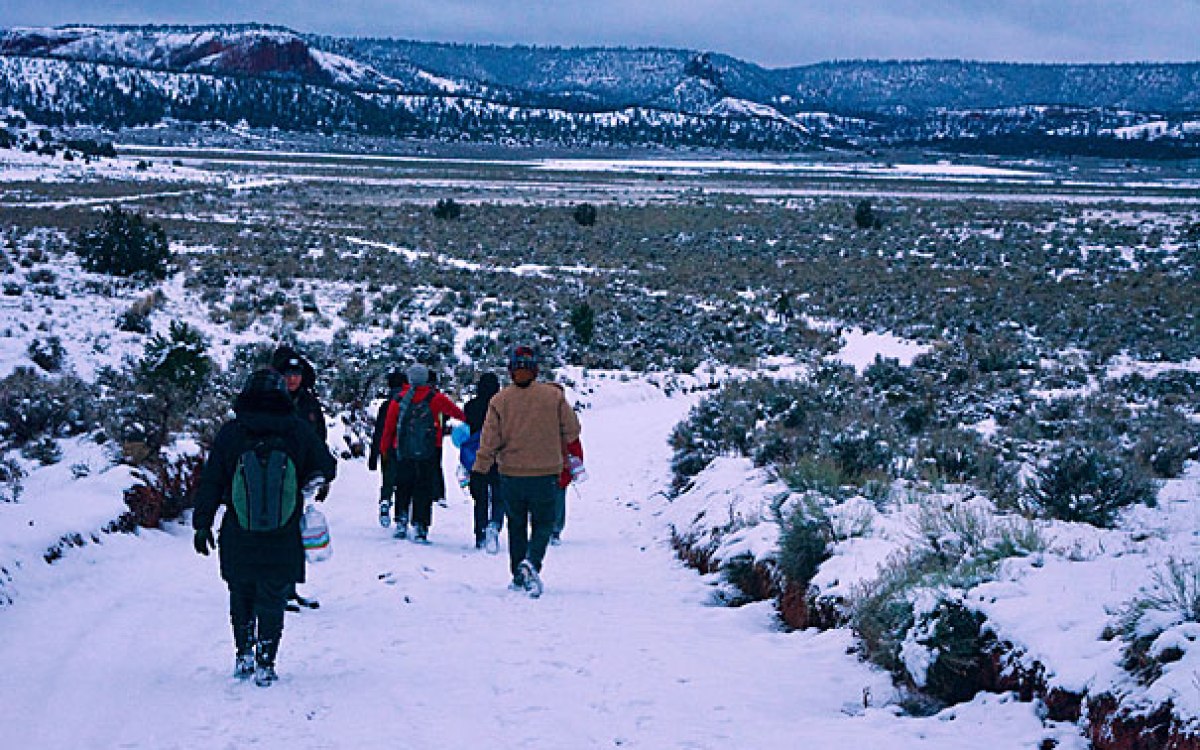
Harvard students learn there may be more to West Virginia than meets the eye.
Pixabay
Dispelling regional stereotypes
Harvard graduate students and West Virginia officials exchange ideas and visits
For those looking to change the world, it usually starts with an idea. For those looking to do so by working with others, what’s perhaps more important is the exchange of those ideas and the effort to keep that back and forth going.
In that vein, a group of first-year joint-degree Harvard graduate students and representatives from West Virginia’s government started an in-person idea exchange, which has now expanded to include officials from Harvard University and officials from West Virginia’s flagship public school, West Virginia University.
In fact, the West Virginia delegation, led by Secretary of State Mac Warner, spent three days in Cambridge last week touring parts of campus, sitting on panels, and meeting with Harvard leaders and community members. The trip was similar to the one 18 M.B.A./M.P.P. students from Harvard Business School (HBS) and Harvard Kennedy School (HKS) took to West Virginia in February, touring the state’s capital and meeting with residents and local business leaders.
The Harvard students chose West Virginia because, as fellows in the HKS Center for Public Leadership, they are encouraged to explore other states, and were studying issues on business and government, political partisanship, and getting to the roots of partisan problems. West Virginia, they thought, would be a good place to dig deeper.
“A lot of the thinking on West Virginia has to do with the reaction to the 2016 election and not so much about the opioid epidemic and how we can help coal not just decimate neighborhoods [economically] when it leaves,” said Guillaume Delépine, the M.B.A./M.P.P. student who organized the Harvard students’ trip, which was funded by the Mossavar-Rahmani Center for Business and Government.
After the trip, the M.B.A./M.P.P students invited some of the officials they met to visit Harvard as a way to a deepen the relationships they formed and connect them with University leaders for potential collaborations.
“You can’t get a good sense of West Virginia by reading about it,” Delépine said. “You have to go. The next best thing — because we can’t bring everyone down there — is for them [West Virginians] to come up here to talk to as many people as they can, make as many friends as they can, and just see if we can start building a very informal but interpersonal relationship between these great folks … who gave us such a warm welcome and at least a few people around here.”
The West Virginian delegation included representatives from the Department of Commerce and officials from WVU. They toured the Innovation Labs and met with a number of leaders at Harvard, including Marshal Margot Gill, Harvard Public Affairs and Communications Vice President Paul Andrew, HKS Dean Douglas Elmendorf, and Belfer Center for Science and International Affairs co-Director Eric Rosenbach.
“There’s more to West Virginia than Trump country.”
Guillaume Delépine, M.B.A./M.P.P. student
“We’re all here getting as much information as we can,” Warner said. “We’re taking in ideas and also exchanging ideas.”
Those exchanges took place a number of ways. One was at a roundtable discussion on energy policy at HKS with Harvard energy experts. The group reviewed potential ways to move forward with a reduced coal economy in West Virginia, and do so in an environmentally conscious way.
“We had a good debate,” said Rob Alsop, vice president for strategic initiatives at WVU. “I think everyone realizes that there’s a lot of challenges as it relates to the impact on a lot of the job support from fossil fuels in West Virginia and how that fits into the overall picture from an economic perspective.”
The delegation also spoke at an HKS breakfast panel on Tuesday about entrepreneurship in the state and their university’s role in it. They told about 20 HKS students and faculty how WVU, through its programs and centers, works with local businesses across the state.
Warner sat in on another roundtable on election security. Warner is a member of the Belfer Center’s Defending Digital Democracy Project, which aims to develop strategies, tools, and technology to protect the election processes and systems from cyber and information attacks.
Along with opening avenues for collaboration, both trips changed participants’ ideas.
“Harvard is almost like a celebrity” among universities, said Julie Sorgi, an M.B.A. student at West Virginia University. “I had a lot of preconceived notions of how Harvard people would act and what the place would be like.” Chief among them was that Harvard, as an institution, doesn’t share its expertise or resources, and that its community members are elitists who look down on others with whom they work.
Sorgi found out that wasn’t true. She and the other delegates from West Virginia were impressed with the earnestness of the Harvard community members they met and their willingness to collaborate.
“It was a very genuine and sincere, ‘How can we help you?’” Sorgi said.
Sorgi plans to write an op-ed on her experience coming to Harvard similar to one M.B.A./M.P.P. student Katie Ragan wrote for the Charlestown Gazette-Mail, West Virginia’s largest newspaper, how the trip there changed her understanding of the state.
Ragan’s op-ed encapsulated the main lesson the Harvard students learned, Delépine said: “There’s more to West Virginia than Trump country.”
West Virginia is a former democratic stronghold that voted for Trump by more than 40 percent in the last election. In recent years the state has suffered an economic downturn, with the steady decline of the coal industry hitting it especially hard. The loss of jobs has led to some of nation’s highest poverty rates, at about 19 percent. West Virginia has also been devastated by the opioid epidemic. In 2017, it had 833 opioid-related deaths, or 49.6 per 100,000 persons — the most in the country, according to the National Institute on Drug Abuse.
Before the trip, what the Harvard students knew about the state had been essentially limited to statistics about its voters, its struggling economy, and its pervasive drug problem. “It’s hard to love a statistic, but it’s easy to love a person and it’s easy to love a place,” Delépine said. “And that’s what we found when we got to West Virginia.”
The Harvard students learned about the economic prospects of the coal and natural gas industries, bipartisan strategies lawmakers are exploring to combat the state’s drug crisis, plans for broadband expansion in rural areas, and West Virginia’s tourism and business strategies. The policymakers, business owners, and regular citizens they spoke with gave them a sense of the state’s culture, Delépine said, and an idea of how committed residents are to the state they love. A mountain bluegrass concert they attended in Fayetteville drove that home.
“A lot of the music was really sad but really meaningful,” Delépine said. “It’s been hard times out there. There were a lot of songs focused on coal country and West Virginia and Appalachia… We talked to business owners; we talked to everyone at the capital. [The concert] was more to meet normal people. This was a chance to be out of the capital and be out of the business end and see real things.”
Lisa Yao, another student on the trip, said the Harvard group was welcomed at each stop they made. They had originally been afraid of being seen as liberal elites.
“You go in expecting people to be antagonistic to you for your liberal views,” Yao said. “You hear statistics about the higher education rate and the unemployment rate, and you have a sort of perception of what people’s lifestyles are. But you don’t understand their value system until you are with them. It takes getting to know them in person to understand the shared humanity that you have and understand what’s important to people.”
Both the Harvard graduate students and the West Virginians hope to keep the relationship they’ve built going. Right now, they’re talking about getting the original M.B.A./M.P.P. joint-degree students back in West Virginia in February to visit WVU, something they did not do on the original trip, hoping to time the trip around a university football game.
Delépine said he hopes the Harvard leaders and faculty members who connected with West Virginia’s delegation continue their newfound relationships also.
“You never know what ways might come up for people to work with each other,” he said.






